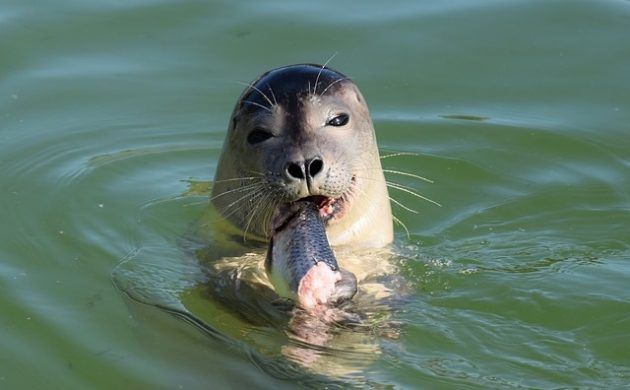Back in 1967, the grey seal became a protected species in Denmark due to over-hunting and since then it has made a startling comeback in Danish waters.
The grey seal is Denmark’s biggest mammal predator – full-grown males can weigh in at around 300 kilos – and recent DNA samples collected from porpoise carcasses documents seal predation of the smaller marine mammals.
“Grey seals are very accomplished hunters and there are indications that they have developed a new hunting strategy,” Kirstin Anderson Hansen, a post-doc at the Marine Biological Research Centre who is one of the researchers behind the discovery, told DR Nyheder.
“It’s intelligent to eat a porpoise rather than a bunch of fish, if possible. The yield is much higher.”
READ MORE: Seals becoming a growing headache for fishermen in Danish waters
Streamlined strategy
Anderson Hansen argues that one of the reasons for the shift in hunting strategy could be the increase in seal population, which has in turn led to some turning to other food resources.
The Danish government recently permitted the hunting of some of the seals again – particularly because they rip open fishing nets to eat the trapped fish inside.
“Over the past five years, we have seen a tendency for seals to hunt other marine mammals. We’ve seen them hunt harbour seals, which are considerably smaller, and now we have proof that they hunt porpoise as well. But we don’t know for sure whether it’s just a few grey seals that have learned the method or whether it is a new strategy practised by them all,” said Anderson Hansen.
READ MORE: Invasive crabs scuttling across Denmark
Doggone it!
In other nature news, the Miljøstyrelsen environmental authority is concerned that the invasive racoon dog may have spread further across Denmark.
The news follows the sighting of two racoon dogs on Funen and researchers fear they may have spread from Jutland, where they are reasonably widespread.
Racoon dogs originated in eastern Asia and are regarded as an invasive species because they are effective predators that can out-compete native predators like foxes and badgers. They can also carry rabies, are prolific breeders and can spread quickly because they are strong swimmers.
Miljøstyrelsen estimates there are upwards of 3,000 racoon dogs in Denmark – primarily located in Jutland.
READ MORE: Man held over wolf shooting in Jutland
The pack shrinks
In other news, researcher has revealed that the contentious wolf population in Denmark has shrunk over the past year.
A new report from the Danish Centre for Environment and Energy (DCE) showed there are now at most five wolves left in Denmark – down from a peak of nine registered earlier this year.
One of the wolves was shot by a farmer in a high-profile case, another was hit by a car in Germany, while two others have emigrated to northern Germany.















